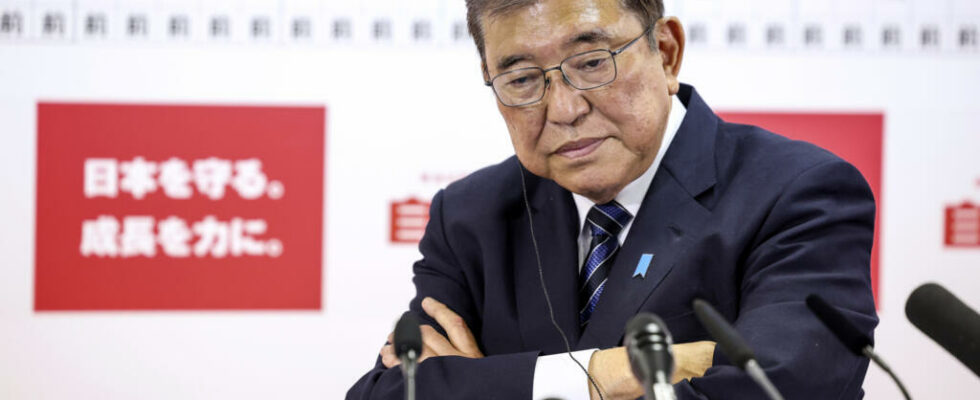The ruling party in Japan lost its majority in the lower house of Parliament during legislative elections on Sunday October 27, for the first time since 2009, according to projections. A bitter failure for the new Japanese Prime Minister Shigeru Ishiba who called this early election.
2 mins
The Liberal Democratic Party (PLD) is credited with 153 to 219 seats, according to initial projections from public television channel NHK. Well below the absolute majority of 233 seats out of 465. Such a result would be almost unprecedented in the history of the PLD, which has managed to stay in power almost without interruption since 1955.
“ We were judged harshly “, declared Shigeru Ishiba on NHK, Japanese public television. The voters “ clearly expressed their desire to see the PLD reflect (on the causes of its defeat) and become a party acting in line with the will of the people “, he added.
Inflation and the slush fund scandal
The Japanese are therefore inflicting an electoral rout on the conservative party, reports our correspondent in Tokyo, Frederic Charles. Heads roll, some of the party barons lose their seats. His partner Komeito (center right) is also weakened. The Japanese are making the ruling coalition pay for rising inflation. The decline in their purchasing power gives them a feeling of impoverishment.
The conservative party also owes its defeat to a slush fund scandal of illegal financing of the party itself, its links with the Unification Church or the very controversial Moon sect. Prime Minister Shigeru Ishiba sees his compromised political future.
A broader coalition to stay in power
Three hours after the closing of the polls, NHK estimates based on exit polls still did not determine whether the government coalition formed by the PLD and its ally Komeito had been able to retain the absolute majority.
Projections broadcast by the Japanese daily newspapers Asahi and Yomiuri, however, suggested that the coalition had probably failed to retain it. To stay in power, his party will have to try to create a broader coalition.
This is not obvious and will limit his ability to act. The government risks being paralyzed. A period of uncertainty and political vacuum begins in Japan.
Also readEarly legislative elections in Japan: a rare high-stakes election
